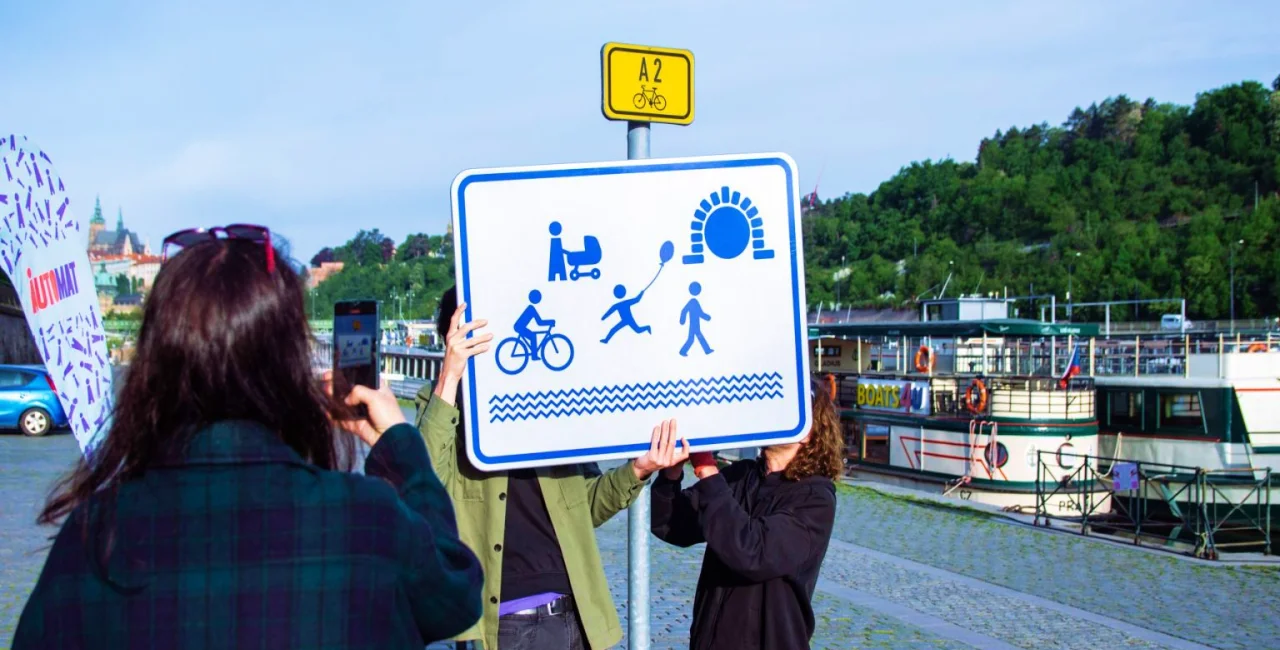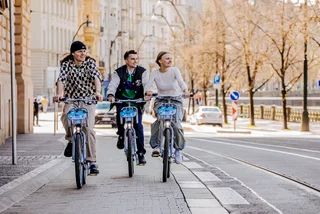In an effort to foster mutual respect among the diverse users of Prague’s busy embankments, nine new signs have been installed along Rašín and Dvořákovo embankments at the start of May, as part of the annual Bike to Work challenge.
The initiative, led by the AutoMat association in cooperation with the local embankment administration, aims to reduce conflicts between pedestrians, cyclists, and other path users.
Prague’s embankments are among the city's most heavily trafficked cycle paths, regularly used by walkers, cyclists, scooter riders, and people with strollers. The A2 main cycling route runs through these embankments on a pair of smooth lanes originally developed with city funds for cycling infrastructure. However, the absence of dedicated bicycle pictograms and mixed usage by pedestrians has created ongoing challenges for coexistence.
The newly installed signs, designed by illustrator Filip Zatloukal, bear the slogan “Náplavka: We all belong here” and are intended to reinforce the message of mutual respect. The signs, roughly the size of residential zone markers, supplement existing “Behave respectfully” signs and form part of a broader awareness campaign, including an animated video and other on-site materials.
The signs were unveiled during a ceremonial installation at the start of the Bike to Work challenge, an event attended by Minister of Transport Martin Kupka and Prague Councilor for Transport Zdeněk Hřib.
“[The] new signs will complement the online campaign with an animated video and other information materials directly on site,” said Anna Kociánová from the AutoMat association.
The initiative will eventually include a total of 10 signs as the campaign continues to promote safe and respectful shared use of the city’s waterfront pathways.
The May Bike to Work challenge runs annually from May 1 to 31, encouraging participants to commute using bicycles, scooters, skateboards, inline skates, walking, or other sustainable modes of transport. In 2023, over 25,600 participants from more than 2,500 companies in 52 cities took part. Teams of two to five people or individual participants can join.
Notably, 75 percent of participants have their entry fees covered by their employers, and many continue using sustainable transport even after the challenge concludes.












 Reading time: 2 minutes
Reading time: 2 minutes 



























